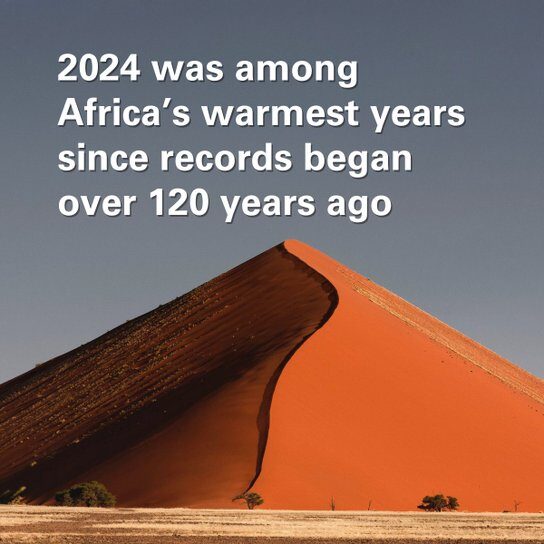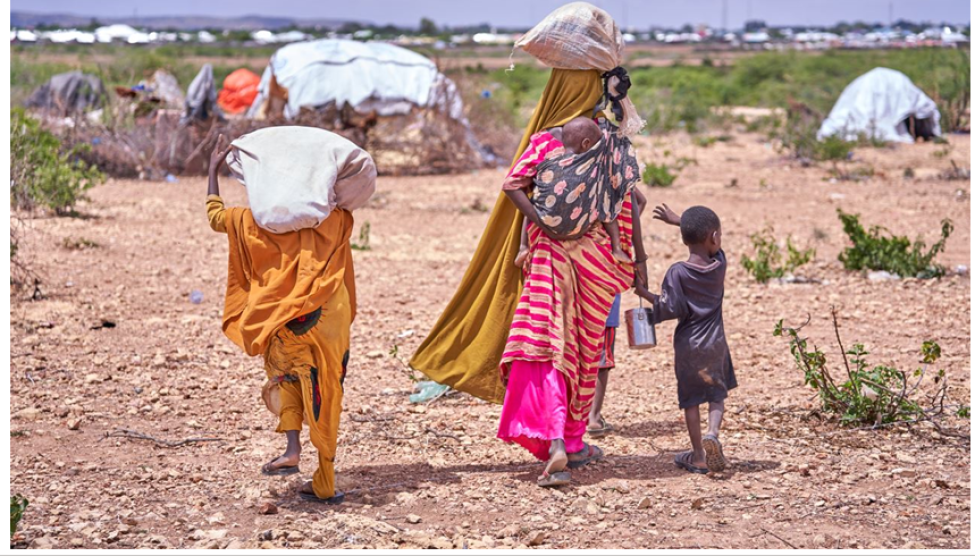Africa Faces Growing Hardship as Climate Change Brings More Floods, Droughts, and Heat.
Extreme Weather Is Making Life Harder for Millions Across the Continent


Climate change is causing more problems than ever for African countries, with extreme weather events like floods, droughts, and heatwaves making daily life harder for millions of people. The World Meteorological Organization (WMO) says that in 2024, Africa experienced its hottest or second-hottest year ever, and the last decade has been the warmest on record. Sea temperatures around Africa also reached their highest levels, leading to stronger storms and marine heatwaves, especially in the Atlantic Ocean and Mediterranean Sea.
These changes are not just about hotter days. They are affecting everything from food and water to jobs and education. Floods in places like South Sudan, Nigeria, and West Africa have destroyed homes, killed livestock, and left millions without enough to eat. In South Sudan alone, floods in 2024 affected about 1.4 million people, wiping out cattle and forcing families who once survived on their own to depend on aid again. “When someone slides back into being fed, it affects their dignity,” said Meshack Malo, South Sudan’s representative for the UN Food and Agriculture Organization (FAO).

Other countries, like Malawi, Zambia, and Zimbabwe, have faced the worst droughts in decades, with food harvests falling far below normal and millions going hungry. In North Africa, low rainfall and high temperatures have led to poor harvests for three years in a row, making it even harder for people to find enough food.
Heatwaves are also a growing problem. In March 2024, schools in South Sudan had to close because temperatures reached 45°C, making it unsafe for children to attend classes. Across Africa, at least 242 million students missed school in 2024 due to extreme weather, with many of them in sub-Saharan Africa. Rising temperatures are also making water even scarcer and increasing the risk of diseases like malaria and cholera.

The El Niño weather pattern, which causes unusual rainfall and temperature changes, made things worse in 2023 and 2024. While some areas like East Africa saw deadly floods, others suffered from long dry spells, hurting crops and livestock and pushing more people into poverty and hunger.
South Sudan is a clear example of how climate change is making life very difficult. The country faces both floods and droughts almost every year. Floodwaters now stay longer, making the land too wet for farming and increasing the risk of diseases. When roads are flooded, aid workers have to use expensive airlifts to bring food to people in need. “This cyclic change between floods and drought, makes the country affected almost a good part of the year,” explained Mr. Malo.
Experts warn that Africa is paying a high price for climate change, even though it produces less than four percent of the world’s greenhouse gases. The economic and social costs are huge, with some reports warning that Africa could lose up to 15 percent of its GDP by 2050 if nothing is done to slow down climate change. More than 113 million Africans could become climate migrants by 2050, forced to leave their homes because of floods, droughts, or other disasters.

But there is hope. The WMO and other organizations are working to help African countries adapt by improving early warning systems, investing in water storage, and supporting farmers with new technology. In South Sudan, for example, the FAO has helped reduce the number of dry months by teaching people how to collect and store water for their crops. However, experts say that more funding and global action are needed to protect Africa’s people and future.
“The State of the Climate in Africa report reflects the urgent and escalating realities of climate change across the continent,” said WMO Secretary-General Celeste Saulo. “It also reveals a stark pattern of extreme weather events, with some countries grappling with devastating floods while others endure relentless droughts and water scarcity.”
Stay woke. Stay tuned. Stay with Akewe News.




